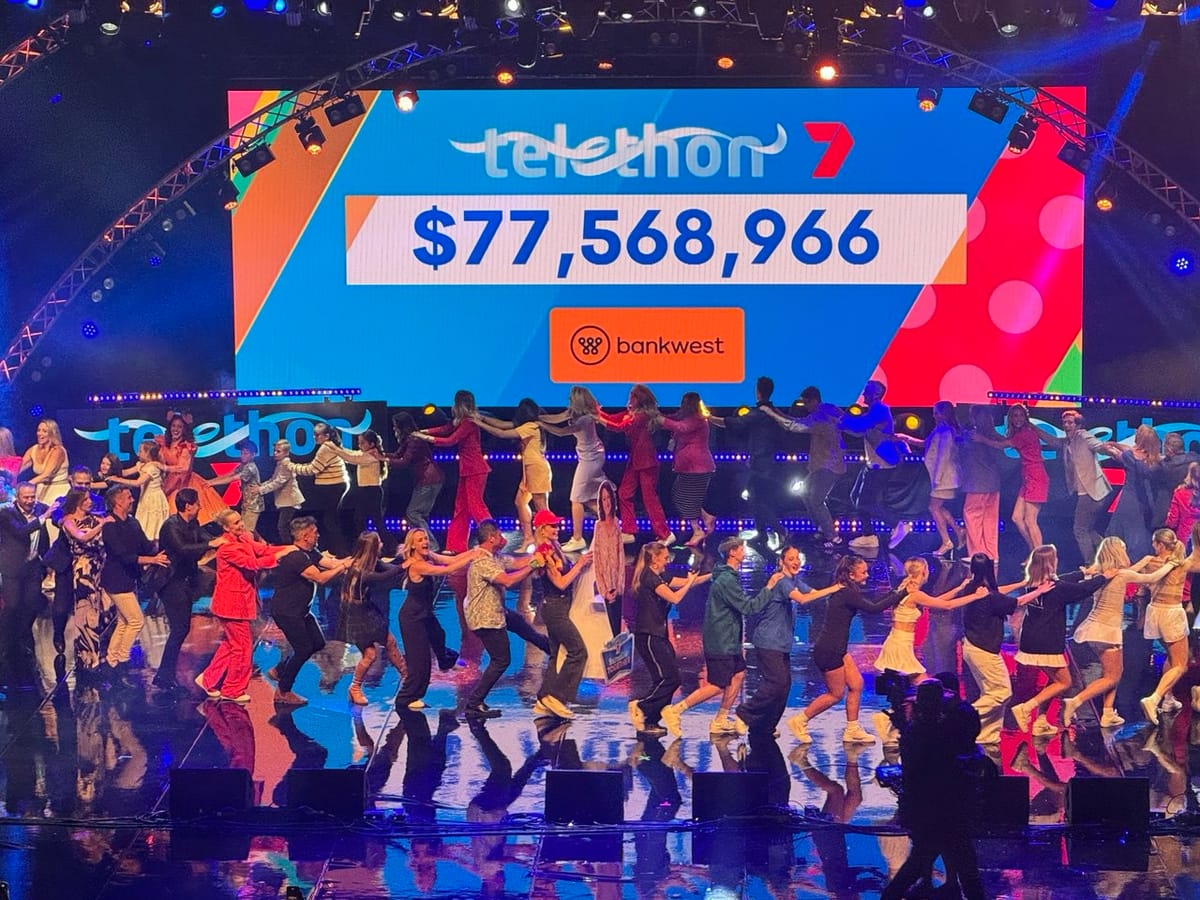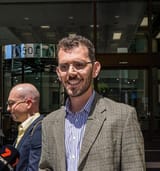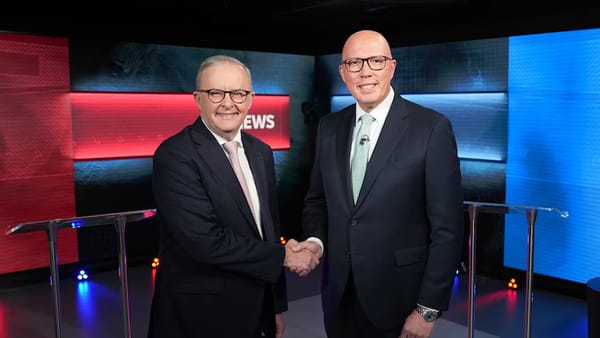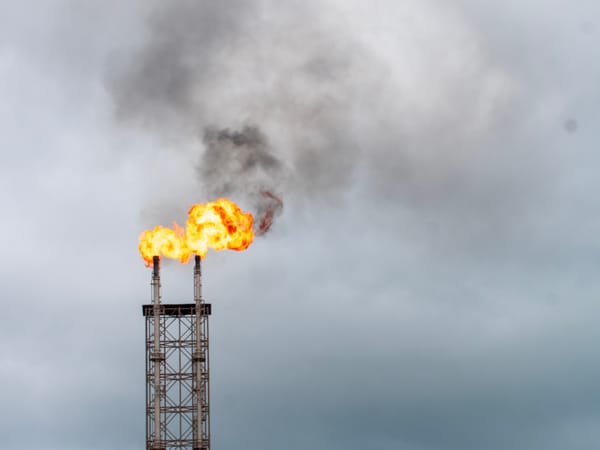Thank you very much for your kind donation
Seven West Media's Telethon makes another huge privatised health spend – laundering the reputation of big business in the process.

In the pages of the newspaper he’s employed by, Basil Zempilas was quoted last week as saying the state of Western Australia is high-achieving in whatever it pursues.
“When WA decides to be good at something ... whether it’s mining, the sporting world, in medical research, if we decide we’re going to go full bore, we are very, very good at it,” said Mr Zempilas, who is Perth’s lord mayor, the Liberal candidate for Churchlands in the upcoming state election, and MC for Channel 7’s annual Telethon.
And he’s right. Another example: Western Australia is very, very good at laundering the reputations of businesses, politicians, and media entities. Our elites have honed an excellent model for appearing incontrovertibly benevolent: raising a shitload of money for sick kids and putting the whole thing on television. Channel 7’s annual Telethon is the highest-raising event of its kind in the world. I saw for myself how the magic happens on Sunday night when I attended the closing live broadcast of Telethon 2024 at Perth’s RAC Arena.
Now, before I go any further, I want to be clear that raising a shitload of money for sick kids is a GOOD THING – but I wonder why it can’t be done from the billions in budget surplus the WA government earns from iron ore royalties each year, or from the billions that the federal government could earn if the Petroleum Resources Rent Tax didn’t fail miserably at collecting a fair share from oil and gas giants. Good health policy paid for by fair taxation is surely one of the basic functions of the state.
The Telethon Kids Institute also does a lot of GOOD THINGS – though it's a shame the state government won’t implement the findings of its world-leading research on how the criminal justice system should treat children (Hint: best practice doesn’t involve locking kids down in their cells for 23 hours a day.)
Generosity is also a GOOD THING. “It’s kids helping kids,” we were reminded more than once during the broadcast, including by Premier Roger Cook when he came to drop off the state government’s contribution. It is sweet that kids are motivated to sell lemonade on the street, cut their pigtails off, and save their pocket money in ziplock bags, all to raise funds for paediatric health research. (“Tell you what, there could be a global shortage of sandwich bags,” said Zempilas from the panel. “They’ve all made their way to Telethon.”)
But as well as kids helping kids, the spirit of Telethon also includes the rich and powerful helping the rich and powerful, largely for reputational gains. Channel 7, which has held the event since 1968, must have particularly appreciated the opportunity to show how wholesome and family-friendly it is this time round, given some of the headlines that have appeared over the past year. Seven West Chair Kerry Stokes is the don of Telethon. He pays a large chunk of the production costs from his own pocket and presides over the annual Telethon ball (as I wrote about yesterday). Given his concentrated ownership of Western Australia’s media, it's no wonder state and federal politicians line up each year to show their faces and make donations. All politicians know it pays to keep Kerry happy – hence why he’s previously been made exempt from Covid quarantines and domestic gas reservation policies alike.
Increasingly over recent years, the big corporate players have gone all-in on Telethon. The capitalist drive towards growth at all costs is embedded deep within the Telethon psyche – the previous year’s record must always be broken. “I think the combination, guys, of the community spirit, the mums and dads, the grassroots donations, and the big boys and girls coming together is what’s helped us take Telethon into uncharted territory in particular over the last few years,” Baz pontificated from the panel on Sunday night. And the big boys and girls did really deliver: $5.5 million each from BHP and Rio Tinto, $2.5 million from Crown Resorts Foundation, $2.2 million dollars from Gina Rinehart’s Hancock, $2 million dollars from Mineral Resources (hot on the heels of revelations that Chief Executive Chris Ellison had cheated the tax office for years), $1.8 million from Chevron, $1.7 from Wesfarmers, $1.1 from Woodside, and $1 million from Andrew Forrest’s Minderoo. It’s a good look for the resources sector and casinos to be ‘digging deep’, just like all those grandmas and school kids out in the suburbs. I suspect it might not be a coincidence that the mining companies in particular are giving ever-bigger donations, just as they’re increasingly under scrutiny for the number of Aboriginal sites they blow up and the amount of carbon they emit.
Personally, I’d rather they dig deep at tax time, and that way, we could fund health, education, and all the rest of the things a functioning society needs without turning it into a PR exercise. That might also make it easier for governments to regulate these destructive industries. Thing is, then these companies wouldn’t get to show off their novelty checks in pictures with Fat Cat.
Last time I saw Mr Zempilas MC at an event he was announcing policy on the fly. This time, he didn’t have to do that to capitalise on the event’s political potential. You can’t imagine a much better PR opportunity for an aspiring politician than to be the face of a 26-hour television extravaganza like this one. If and when Basil Zempilas becomes Premier of WA, be that in 2025 or somewhere further down the track, I bet he’ll still be sitting behind that Telethon panel in his slim-fitting blazer and pocket square, patting Kerry Stokes on the back while whispering in his ear during the ad breaks.
The current Premier got less screen time but did make an appearance at the RAC Arena on Sunday. Roger Cook’s personal donation of $1000 received a lukewarm response from the crowd (“He could have done better than that,” grumbled one dad seated in the row behind me), but the state government’s $13 million contribution, beating out $6 million from the feds, tipped the tally over into record-breaking territory and brought the house down. As the crowd went wild, Cook was whisked over to join Perthonalities and Channel 7’s finest in a celebratory conga line. Of course, Cook could just rejig the budget if he wanted to put more taxpayer funds into health, but then he wouldn’t get to be part of the family.
By night’s end, $83.2 million had been raised, helped along by a last-minute $5 million addition from Mr Stokes.
As for the show itself: as someone who hasn’t regularly watched commercial television in years, I discovered the vibes have not shifted. I suspect every Telethon broadcast over the past 20 years has basically been the same. The set design, the on-screen personalities, the musical acts (Human Nature, Guy Sebastian, Vanessa Amorossi), the cut of the trousers, the jokes – all would have seemed more or less familiar in 2004 or 2014. Even everyone’s favourite TV vet Dr Harry Cooper was still kicking around. (“These kids, in a way they’re like little orphaned animals that struggle with life,” he said during a cross to the phone room.)
I’ve something to confess though: I was kind of into it. As Roger Cook joined that conga line, as the familiar strains of that grating theme tune began to play ("Thank you very much for your kind donation..."), and as the crowd roared around me, I found myself moved to emotion, tears welling in my eyes. I snapped out of it quickly, but let’s face it, I’m a West Australian at heart. Still inside me is a boy from Bunbury who convinced his parents to let him phone in a donation and stay up late to watch D-listers throw pies at each other’s faces. Telethon works – they’ve nailed the formula. Kerry Stokes and Co. will surely want to keep their good thing going until the very dying days of broadcast television. You’d think one of the richest places on earth would be able to afford world-leading paediatric health without having to resort to putting on a 26-hour circus that doubles as an extended ad for big business, but that wouldn’t be in the true spirit of Telethon.





